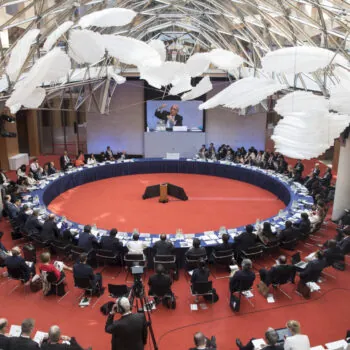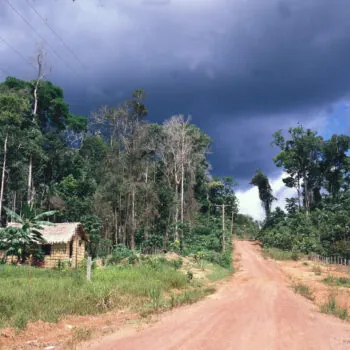For those in the know, Doha was never going to be anything other than a low key COP. The agreement reached at the Durban COP in 2011 cast a long shadow out to 2015, the deadline for the next global agreement on climate change. What Doha delivered was a spring clean, a de-cluttering of the complex negotiation tracks, to allow for a focus on the 2015 agreement from here on in. Whilst there was outrage from some sections of the climate community at Doha’s inability to deliver agreement on a pathway to 2°C, this was never a realistic option. What Copenhagen showed us is that we cannot keep expecting each COP to be a “Cup Final”: 2°C will simply not be won at any single COP. Instead, we need to work to constantly ratchet up ambition, building the political preconditions necessary in capitals to achieve this.
What Doha did demonstrate is two key things: first, expectations that a global deal will be reached by 2015 remain firmly in place; second the UNFCCC is the forum that can deliver this deal. It is the politics, not the process, that lacks ambition.
Perhaps the biggest outcome of Doha was as a result of the ‘Loss and Damage’ curveball thrown into the negotiations at the last minute. Ministers were unprepared and frenzied phone calls to capitals interspersed informal talks that went on until the small hours of the morning. In the end there was a remarkable agreement to establish institutional arrangements, such as a mechanism, on loss and damage by the time of the Warsaw COP.
The Loss and Damage discussion dates back to the Cancun COP in 2010 and focuses on what happens when countries can’t adapt their way out of climate change. Late in the day this debate – driven forward by the most vulnerable Small Island States angry at the lack of progress on ambition – gained critical mass and became ‘The Issue’ of the negotiations.
Contrary to the views of some environmental correspondents, ‘Loss and Damage’ is not purely an issue of compensation. It offers a profound and compelling new framework within which to dramatise and consider the local impacts of climate change. It matters because it creates a clear landing point for the IPCC’s Fifth Assessment Report and must surely spark a set of national conversations on the need to assess and understand the impacts of climate change on core national interests. At present, only a handful of countries (notably Bangladesh and other vulnerable countries) do this. Without a widening of this approach, which ‘Loss and Damage’ assessments should deliver, the political space to increase ambition will remain narrow.
The UNFCCC process has helped to concentrate minds in capitals on ramping up ambition at home in time for a 2015 agreement. The test in Warsaw this November will be on whether countries can overcome their fixation with the form of a Loss and Damage outcome to instead focus on its function. Only by placing the real risks from climate change front and centre of the debate will ratchet up ambition on action to mitigate it.


